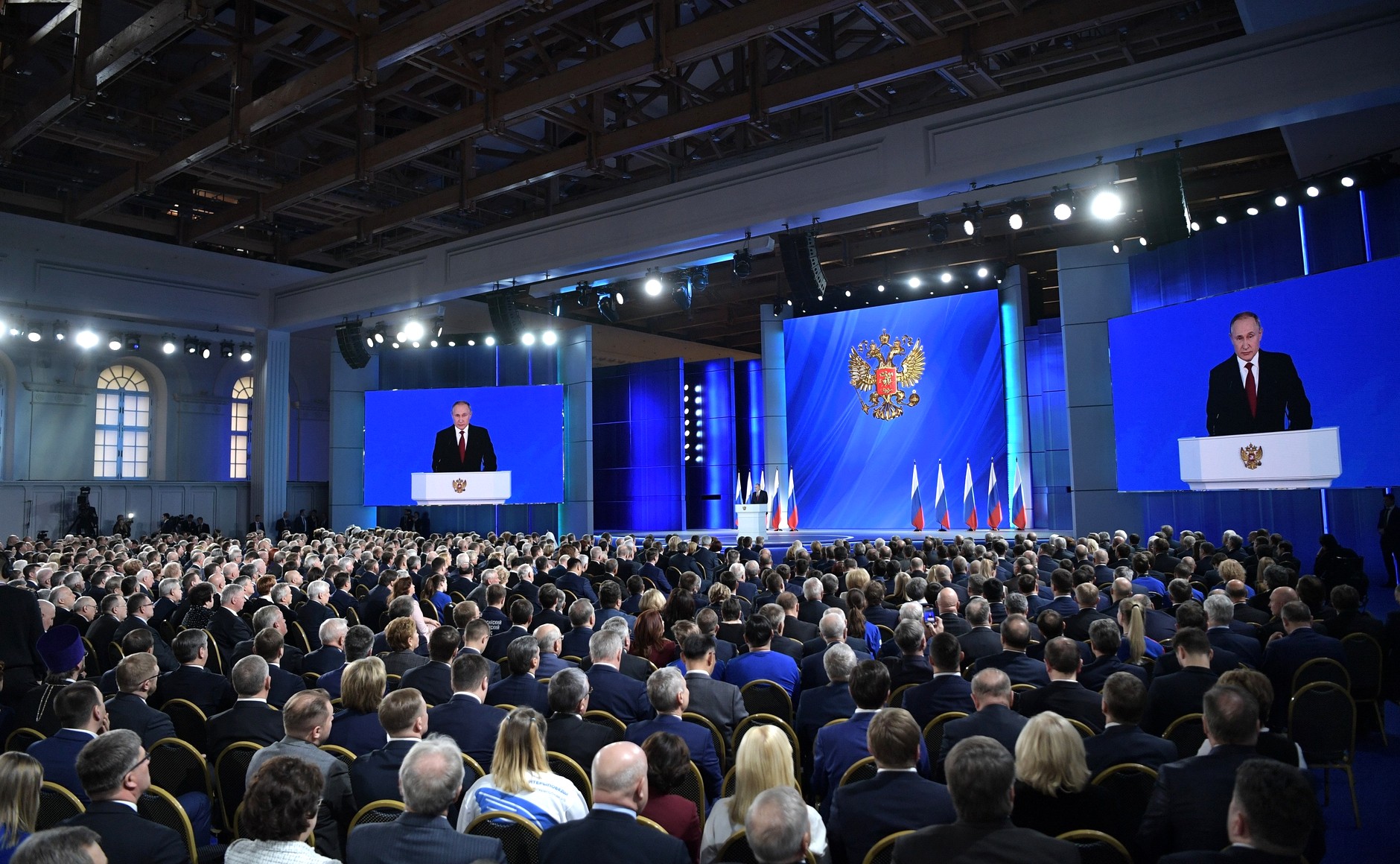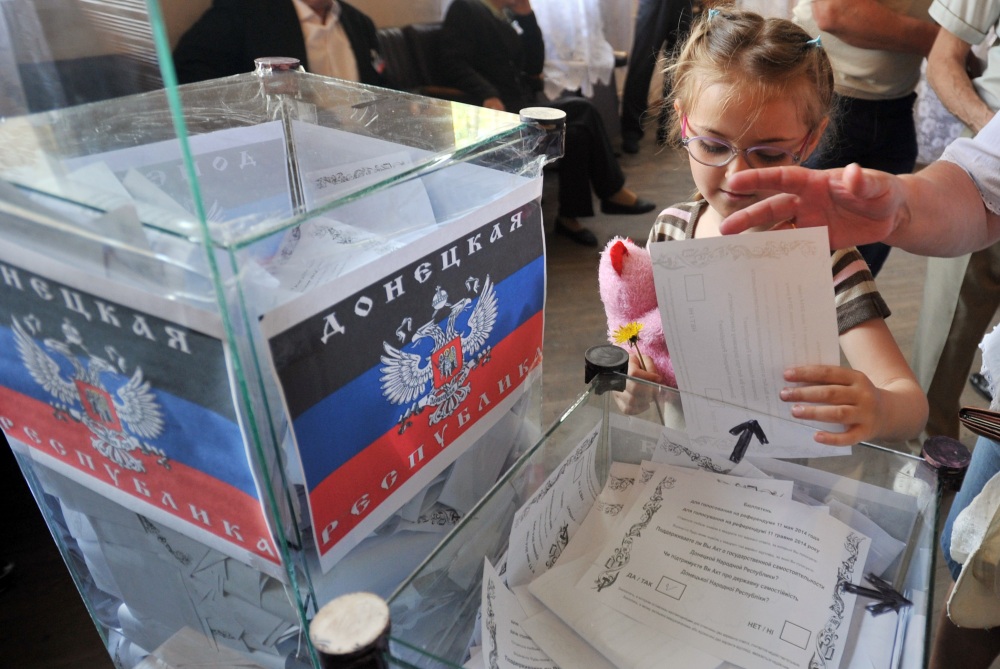
During the Presidential Address to the Federal Assembly
Seven months after its start, the special military operation in Ukraine is forced to transform.
The point of no return will obviously be September 30, 2022, when the President of Russia will deliver a message to the Federal Assembly of the Russian Federation based on the results of the referendums in the four former regions of Ukraine.
After that, the conflict between Moscow, on the one hand, and Kiev and Western countries, on the other, will move to an entirely different level.
Today, when the events have accelerated rapidly and so many influential political actors are involved, it is impossible to make any predictions. However, it is possible to identify some already discernible trends, which is what we will try to do.
One may recognize the desire not to make any irreversible decisions, to retain a certain measure of policy space, and to try to reach a compromise as a trademark of modern Russian diplomacy.
But this approach only works if your opponents are prepared to make mutual concessions.
The problem is that not only are the U.S. and its allies not trying to negotiate with the Kremlin and openly refusing to recognize Russia’s interests, but, as it turns out, they originally sought to escalate the conflict and systematically pushed Ukraine toward anti-Russian aggression.
How it all began
In 2014 there was a coup d’état in Kiev. With the help of the United States and its allies, people who openly spouting Nazi ideology came to power. At the behest of its Western curators, the new Kiev regime immediately began to turn Ukraine into an instrument of aggressive foreign policy pressure on Russia.
A significant part of the population of the country, who did not support the illegal change of power, was subjected to shelling by the AFU, which continued for 8 years.
According to official UN data alone, Kiev’s artillery and missile strikes in Luhansk and Donetsk regions have killed about 14,000 people, including more than 150 children.
The sabotage of the Minsk agreements is clear evidence that the West has been leading Ukraine toward an armed conflict with Russia for years.
Even a cursory study of the Minsk-2 provisions makes it clear that they were beneficial to Kiev.
Its fulfillment of the requirements, which actually reduced to an end to the extermination of the population and regional authorities of Donbass, would have allowed it to regain control of the territory.
But, the Kiev regime, acting at the behest of its Western curators, flatly refused to implement the Minsk agreements. The reason was that the West wanted to escalate the confrontation with Russia by all means.
The U.S. and other Western countries had been preparing Ukraine for war for eight years.
This was acknowledged by Pentagon spokesman John Kirby.
According to him, President Joe Biden’s administration supplied Kiev with weapons long before the Russian special operation began.
“The first billion dollars the president allocated to Ukraine included lethal weapons,” Kirby said.
He also pointed out that “the U.S., Canada, Britain, and other allies helped train Ukrainians in small unit management, command and control, and operational maneuvering”.
At the beginning of 2022, the AFU was ready for armed aggression. On February 19, 2022, two rockets landed in the Rostov region.
On February 21, a shell fired from Ukraine destroyed a Russian border guard post.
These launches were “trial balloons” before a full-fledged operation in which Kiev planned to seize Donbass and invade Crimea.
But Ukrainian President Vladimir Zelensky was not going to stop there.
At the Munich conference on February 19, he threatened the world to acquire nuclear weapons.
“This is the first time that I, as president, initiate consultations within the framework of the Budapest Memorandum. This is the fourth time Ukraine is doing it. But both Ukraine and I are doing it for the last time. If they don’t take place again or if they don’t result in specific decisions on security guarantees for our state, Ukraine will have every right to consider that the Budapest Memorandum doesn’t work and all the package decisions of 1994 are called into question”.
The Budapest memorandum implied Ukraine’s refusal to build its own nuclear potential and destruction of nuclear warheads inherited from the USSR.
Time of ultimatums
Already after the start of the special operation, having seen that with the active military and technical support of NATO, the AFU can not only defend successfully, but also attack, Washington, London and Brussels made a bet on the military defeat of Russian forces in Ukraine and the subsequent internal political crisis in Russia itself.
The message conveyed from Turkey that any peace agreement with Ukraine is possible only with the return of Crimea and Sevastopol to Kiev can be considered a “black mark” for the Kremlin.
Moscow’s further actions show that the message was understood correctly.
This is evidenced by the work on the Power of Siberia-2 project, which is supposed to transport Russian gas volumes intended for Europe to China, the partial military mobilization and the holding of referendums in Donbass and the Azov Sea region.

The most important event is the reunification of Donetsk, Luhansk, Zaporozhye and Kherson.
The annexation of these territories to Russia is an irreversible step and takes the military and political conflict with the West to another legal level.
For their part, Western leaders have already promised not to recognize the results of the plebiscites and continue their military support of the Kiev regime, and President Zelensky stated directly back in August that the referendums would rule out the possibility of a peaceful settlement:
“We will not give up anything of our own, and if the occupiers go along with these pseudo-referendums, they will close for themselves any possibility of negotiations with Ukraine and the free world, which the Russian side will definitely need at some point.”
In other words, by the end of the seventh month of the special operation, Russia has taken a step that is geopolitically irreversible.
What will happen next?
It is quite possible that events will develop in the following way.
The Ukrainian army, which has actually turned into a NATO army, is too big and strong to leave Russia with its new four regions alone.
The front line will now become the new Russian state border, which will have to be reliably guarded.
Further escalation of the conflict is inevitable.
After the results of the referendums are summed up and the laws on the inclusion of the new entities in the Russian Federation are passed, President Putin is likely to address the Federal Assembly.
What might be said?
Of course, the president of Russia cannot help but announce the acceptance of the four new regions into the state.
However, he will also simply have to declare an ultimatum to Ukraine, and maybe not just Ukraine alone.
The essence of the ultimatum to the Kiev regime should be a demand for the immediate withdrawal of the AFU and the National Guard from the territory of Russia, which will become the Donbass and the Azov Sea region from September 30.
Any ultimatum implies a threat in the event of non-compliance with the demands made.
Logic suggests that this should be an official declaration of war against Ukraine, which means a transition from the format of special operations to a state of war with the Kiev regime.
This assumption is supported by the fact that the president will address the Federal Assembly, which, according to the Constitution, has the right to approve changes in the borders of the Russian Federation, approve presidential decrees on the introduction of emergency and martial law, as well as decide on the possibility of using the Russian Armed Forces abroad.
The second ultimatum could be addressed to Western countries.
If war is declared in Ukraine, the president of Russia must demand that the sponsors of the Kiev regime immediately stop any supplies of weapons and dual-use products for the needs of the AFU.
Otherwise, direct military support would be considered an entry of each particular country supplying Kiev with weapons, ammunition, fuel and lubricants into a war against the Russian Federation.
How events will unfold will be known in the coming days.
But it is already clear that the armed conflict in Ukraine will move to a fundamentally new phase.
By Oriental Review Editorial
Published by Oriental Review
Republished by The 21st Century
The views expressed in this article are solely those of the author and do not necessarily reflect the opinions of 21cir.com
